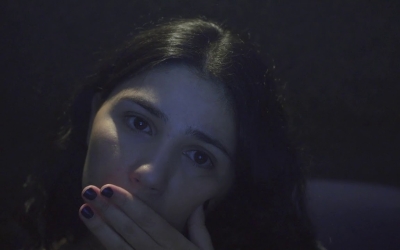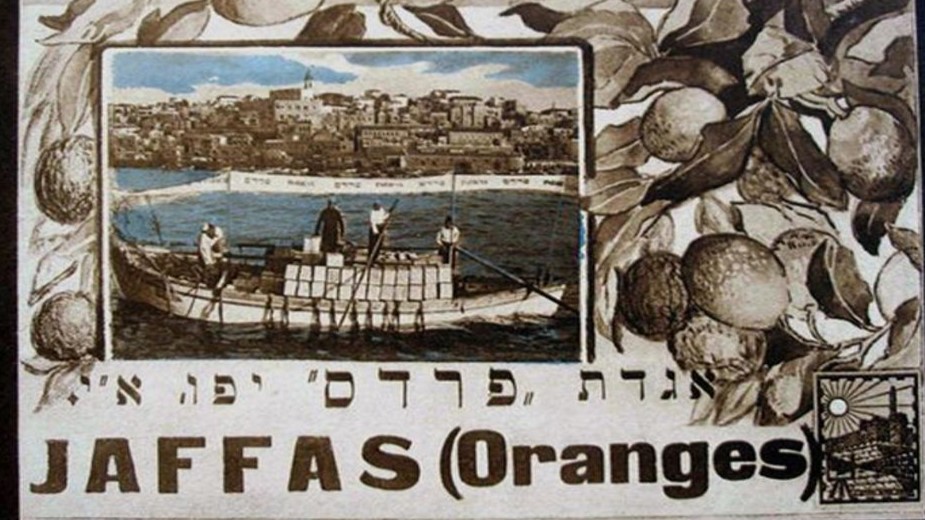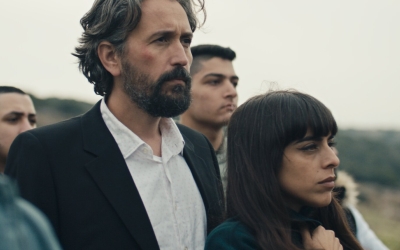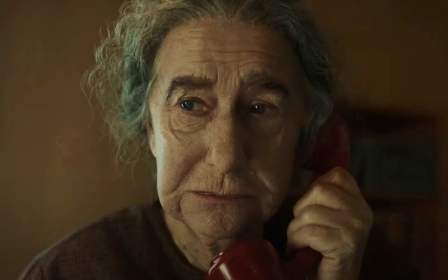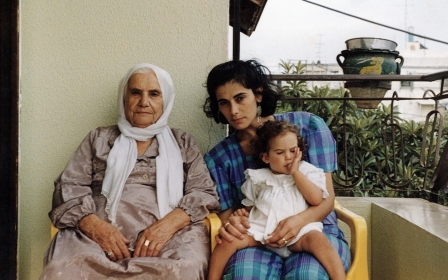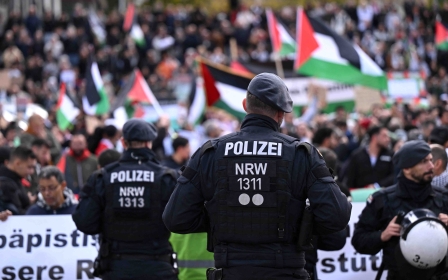In their own words: Seven Israeli films exploring the Palestinian cause
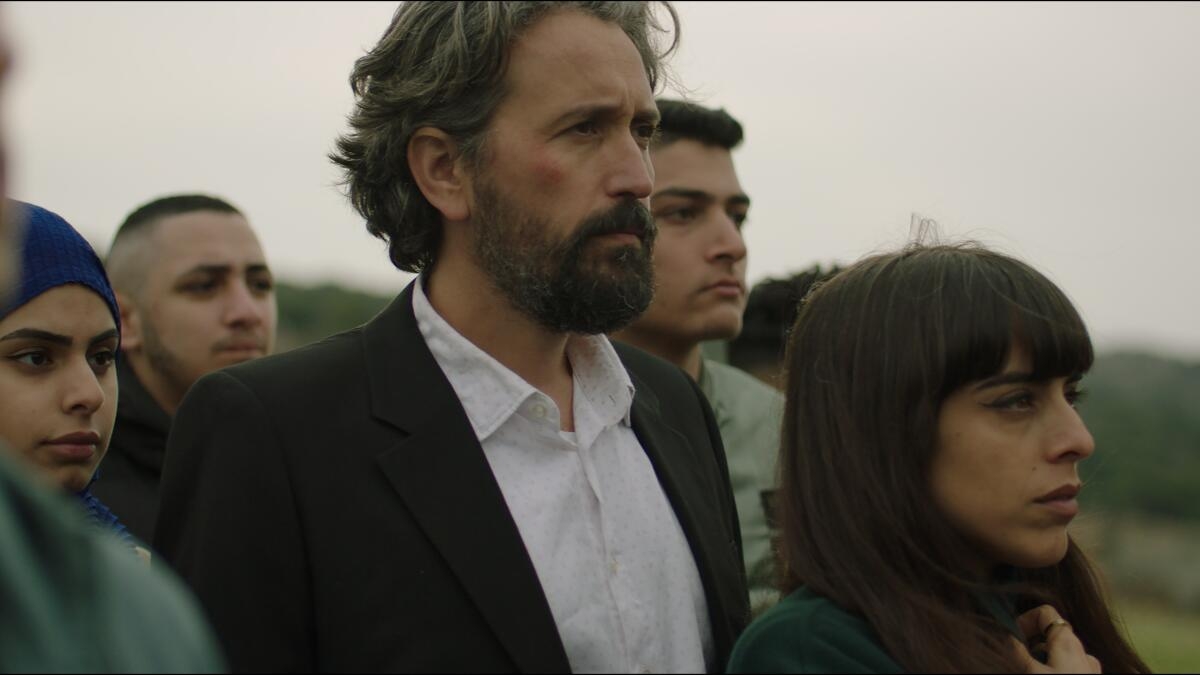
Since 7 October, in an attempt to provide context for the current war, a number of articles across a wide spectrum of media outlets have listed films for the uninformed viewer to better understand the different dimensions of the conflict.
The majority of these pieces featured familiar Palestinian titles, including Curfew (1994), Paradise Now (2005), 5 Broken Cameras (2011), Farha (2021), and countless documentaries made by European filmmakers about Gaza, such as Born in Gaza (2014), Samouni Road (2018), Tears of Gaza (2010) and Gaza Fights for Freedom (2019).
Admirable and forthright as these films are, they are predictably prey to accusations of bias.
These oft-cited films have primarily focused on the lived Palestinian experience the world has known and idly followed for several decades now.
For the purposes of this article, and to avert the accusation of one-sidedness in solely focusing on Palestinian voices, we have opted to highlight a group of Israeli films.
New MEE newsletter: Jerusalem Dispatch
Sign up to get the latest insights and analysis on Israel-Palestine, alongside Turkey Unpacked and other MEE newsletters
All are directed by Israeli filmmakers and shed a different light on the conflict while providing a more profound understanding on how we reached this devastating point in history.
Two primary criteria were employed in drafting this list: thoroughness and cinematic ingenuity in the treatment of the tackled subjects, and irrefutable confidence in the filmmakers’ ethical position towards the Palestinian cause.
Each of these films are pieces of a grand mosaic revealing a morally bankrupt state whose decades-long policies have led us to where we are today.
The efforts of these filmmakers are as indispensable as those of their Palestinian counterparts.
The First 54 Years: An Abbreviated Manual for Military Occupation (2021)
No other Israeli filmmaker has been as staunchly and obtrusively anti-Zionist as the great Parisian-based documentarian and satirist Avi Mograbi.
The veteran filmmaker is a founding member of the famous Breaking the Silence, an initiative founded by a group of ex-soldiers whose aim is to document abuses against Palestinian civilians by the Israeli military in the occupied West Bank, East Jerusalem and Gaza.
Mograbi’s characteristic black humour and angry tenor take a backseat to this subdued, straightforward and factual document of how Israel managed to seize full control of the occupied territories since the 1967 war.
Interviews with thirty-eight Israeli soldiers are punctuated with the director’s dry commentary on strategies used by the government to annex the Arab lands.
Mograbi underlines two fundamental and oft-forgotten facts. The first is that UN Resolution 242 of 1974, which demands Israel withdraw from the Occupied Palestinian Territories, has been deliberately ignored by nearly every succeeding administration in Israel.
Second, that the successive eruptions of mass-scale violence that commenced with the First Intifada in 1987 was a direct upshot of Israel’s continuous annexation policies.
Equally illuminating is the Zionist state’s employment of the violence it instigated to paint itself in the role of the victim in front of the international community.
By the end of the film, Mograbi makes it clear that any hope for a fair two-state solution has been nothing but an Israeli manufactured delusion - that returning stolen lands and giving Palestinians the right of self-determination was never on the table.
Wry, fierce and highly exact, The First 54 Years is one of the most important, most comprehensive historical documents about the conflict.
The Laws in These Parts (2011) and The Viewing Booth (2019)
Like Mograbi, filmmaker Ra'anan Alexandrowicz is also an expat, based in Philadelphia. A brilliant documentarian whose self-reflexive work is distinguished for its concentration on the limitations of the medium.
Alexandrowicz scored a worldwide hit with his Sundance wining The Laws in These Parts, a damning examination of the Israeli legal system erected, as one interviewee puts it, to enforce order if not justice.
Comprised of interviews with retired army judges, Alexandrowicz, like Mograbi, takes the 1967 War as a starting point to investigate the legal framework responsible of the systematic subjection of Palestinians and for the legalisation of settlements outside Jerusalem.
From the state-sponsored racist treatment of Arabs to the rise of “administrative detention”, where the accused can be held indefinitely in confinement without charge, Alexandrowicz lays bare a bigoted judicial system that has been relentless in dehumanising Palestinians.
Alexandrowicz conducts the interviews against a wide screen containing footage of bogus trials along with sobering videos of the violence and humiliation Palestinians have been enduring for decades.
He forces his subjects to confront the repercussions of the laws they conjured up. Some do admit their culpability in the oppression and the bloodshed that has been spilled for more than half a century; others adopt a more demure position, refusing to be judged and shielding themselves from any discernable guilt.
The success of The Laws in These Parts did not yield any political change in Israel, propelling Alexandrowicz to take an extensive hiatus and question the efficiency and impact of the film medium.
Eight years later, he released the equally probing The Viewing Booth, essentially a lab experiment centered on the reaction of a Jewish-American college student to footage released by B'Tselem, a Jerusalem-based NGO documenting human rights violations in the occupied territories, and propaganda videos released by the Israeli army.
The sympathy the students initially professes to the gruelling footage of the Israeli abuses towards Palestinian civilians is gradually overtaken by doubt and ultimately apathy.
The student filters the images according to her convictions, shrugging her uncertainty with time and finally preventing herself from considering any other truth than the one she has long believed in.
“Maybe when we question what we see, it reinforces what we believe in,” she says. “Maybe B'Tselem is actually helping me.”
This climate of distrust, of the blind faith in Zionist righteousness, is a byproduct of the Jim Crow state created by the lawmakers of The Laws in These Parts. As such, the possibility for tangible change, the film hints, are increasingly remote.
The Settlers (2016)
The feature documentary by Romanian-born, Israeli-raised Shimon Dotan is easily the most enraging entry in this list.
Its subjects are presented with one simple question: what is a settler? The answers he largely receives over the course of the picture are unsettling in their outright racism, disturbing in their ignorance and self-entitlement, and despairing in their unwavering rotten doctrine.
Similar to Alexandrowicz and Mograbi, Dotan takes 1967 as the initiation point for the expansion of settlements, underscoring the role of Rabbi Zvi Yehuda Kook in giving a religious legitimacy to the movement.
The restrictions briefly enforced during the Rabin reign in the 1990s would soon be tossed out of the window however, first by Sharon and later by subsequent regimes.
Dotan incorporates archival footage and interviews with critical leftist Israeli activists and academics into his chronological narrative, but the focus of the film remains the hair-raising interviews with the settlers.
Many of the interviewed subjects are unabashed religious zealots who assert their divine right for the land; others have treated the forcibly taken Palestinian lands as nothing more than affordable housing; while one was propelled to join the clan out of a plain desire to have a makeshift home.
All throughout, the robbed rights of the Palestinians are absent in the heads of the settler subjects - discarded, rebuffed, and dismissed. The government’s sanctioning of the settlements lends the settlers’ aggression, bigotry, and corruption a legal safeguard no Palestinian can challenge.
Danton sheds a light on a familiar Israeli reality the West has chosen to turn a blind eye to.
Tantura (2022)
The Nakba remains a taboo subject for even the most left-leaning of Israeli artists. Alon Schwarz breaks the long silence with this haunting documentary that chronicles the little-known 1948 massacre of the eponymous Palestinian seaside town that saw the IDF’s Alexandroni Brigade murder hundreds of Palestinian villagers and bury them in mass graves.
The genesis of the project pertains to research conducted by academic Teddy Katz in the late 1990s in which he managed to interview soldiers who either witnessed or were involved in the massacre.
When news broke out about Katz’s findings, the soldiers revoked their confessions and ended Katz’s career.
Katz shared the recordings of the soldiers with Schwarz, and it is these interviews that form the basis of this searing expose.
“I found seven Jewish people who said there was a massacre [at Tantura]. But later, they all fell into line and denied it.”
— Middle East Eye (@MiddleEastEye) December 16, 2022
Filmmaker Alon Schwarz challenges Israel's narrative about the 1948 massacre of a Palestinian village. pic.twitter.com/j9MntjjLrz
Additionally, the director interviewed several surviving soldiers; some described the murders they oversaw; others did admit they took part in the killings. None express any remorse for their actions; none show any humanity to the murdered Palestinian men who remain buried in anonymous graves.
Tantura is not The Act of Killing where the murderers come to terms with the grave evil they committed. In Israel, the end justifies the means, and all crimes are forgiven for the supreme purpose of nation-building.
The single, most important, historical fallacy Schwarz rectifies is that Palestinians simply “ran away”, as he puts it, when the Israeli army came for their land.
The state of Israel, according to the film, is constructed on bloodshed: blood that never stopped spilling.
And until there’s a formal acknowledgement of the historical atrocities this self-righteous nation had committed, this cycle of violence shall never stop.
Jaffa, The Orange's Clockwork (2009)
Less immediate if no less powerful is Europe-based Eyal Sivan’s contemplative essay film about the appropriation of signature Palestinian oranges into an Israeli crop exported the world over.
Intermingling archival footage, photographs and interviews with both scholars and elderly witnesses, Sivan affectionally surveys the pre-1948 years when Jews and Palestinians lived in relative harmony next to each other. The Nakba changed everything.
Even though Jews only owned seven or eight percent of Jaffa’s land, Israeli forces kicked out Palestinians from their homes, seizing full control of the city, and claimed its crop to be their own.
Jaffa became a symbol for Zionist propaganda - the cornerstone of the designated Palestinian desert land myth that Israelis cultivated when they took over.
It became a symbol of the “desert we have made bloom” of the “land without people for a people without land”, as the infamous Zionist slogans put it.
Sivan portrays the establishment of the state of Israel in 1948 as a grand colonialist undertaking that exploited every possible means to set up a glorified nationalistic self-image teeming with misinformation.
As the film progresses, the tactics used by the Israeli state to tighten its control over the land transpire to be the same ones the Zionist propaganda machine continues to rely on today: the misappropriation of the image, the distortion of history, and the robbing and obliteration of the Palestinian identity.
The role the British played in promoting Jewish settlements in 1938 in order to maintain its imported flow of citrus acts as a reminder of how the western colonialist forces have greatly contributed to the disenfranchisement of Palestinians.
Let it be Morning (2021)
This is the least obvious film in the list. The politics of Eran Kolirin’s surreal black comedy is not as confrontational as the previous titles; its political themes are enlivened in a subversive storyline that unearths the crude reality of the Palestinian existence inside Israel.
Based on a novel of the same title by controversial Palestinian writer Sayed Kashua, the film’s plot centres on Sami (Alex Bakri), an IT executive leading a comfortable middle-class life in Jerusalem until he finds himself stranded in his childhood Arab village due to a military blockade enforced for reasons never fully explained.
Estranged from his Arab community, Sami gradually realises that the prosperous lifestyle he’s been leading has been nothing but a cover-up for his fragile and disposable existence in a society where he’ll always be treated as a second-rate citizen.
The film is part an examination of the ghettoisation of Palestinians inside Israel, part an incisive study of entrapment and the cruelty of not being able to take one’s fate in their own hands.
Let it Be Morning is arguably the most compassionate, most perceptive, most piercing depiction of Palestinian lives created by an Israeli filmmaker.
Featuring a cast comprised entirely of Palestinian performers, Let it Be Morning stresses that Palestinians can never have a normal human existence as long as Israel’s position towards its abhorred minority remains unchanged.
This article is available in French on Middle East Eye French edition.
Middle East Eye delivers independent and unrivalled coverage and analysis of the Middle East, North Africa and beyond. To learn more about republishing this content and the associated fees, please fill out this form. More about MEE can be found here.


